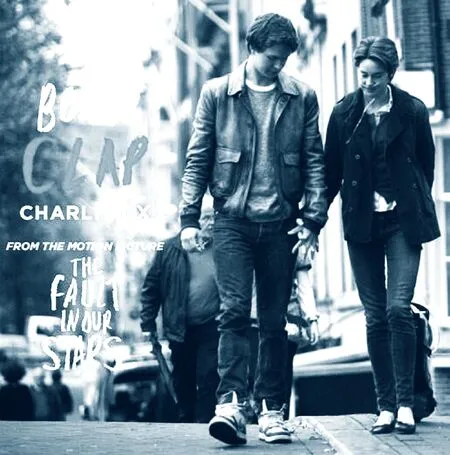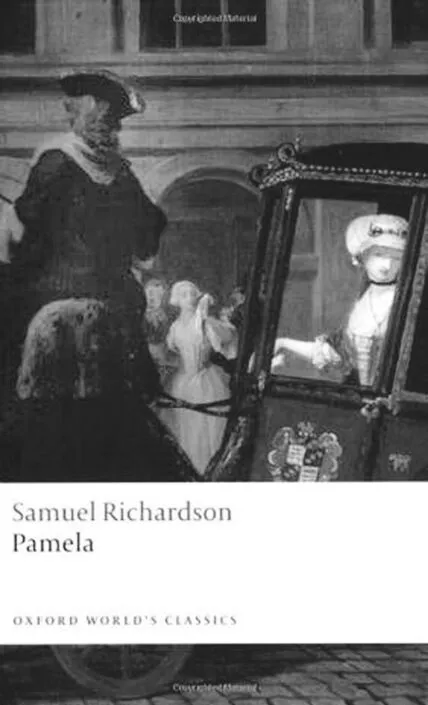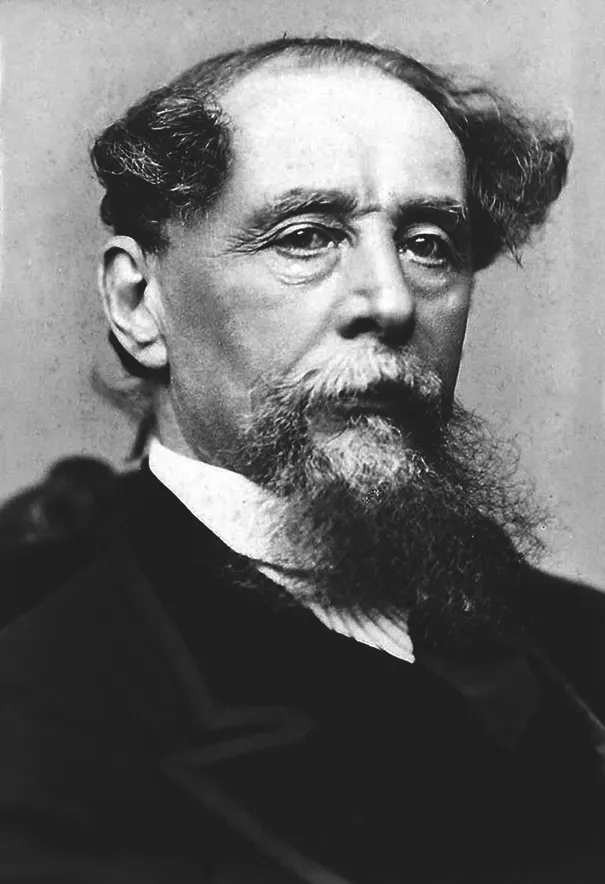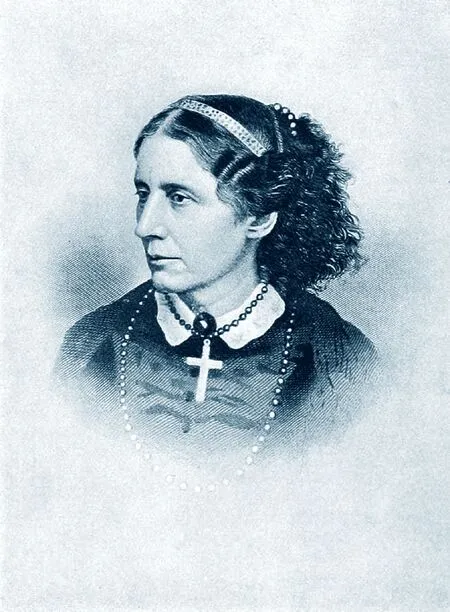Crying While Reading Through the Centuries
Pelagia Horgan
∷安妮 选注
一位美国批评家用挑战的口吻宣告:“我是一个从不会哭的读者。这代表着我无情吗?还是我成熟了?”一场关于“哭泣”的争论就此沸沸扬扬地展开了:在阅读时,你会哭吗?哭泣的意义是什么?哭泣的背后是怎样的价值观和道德观?它在阅读的历史上究竟代表着什么?
What does it mean to cry over a book? It’s a question that has been in the foreground lately,about the merits of John Green’sThe Fault inOur Starsand other young-adult fiction.1. in the foreground: 处于最突出的地位,成为众所瞩目之事;merit: 长处,优点;John Green: 约翰·葛林(1977— ),美国青少年小说作家。他2012年的作品《生命中的美好缺憾》(The Faults in Our Stars)荣登《纽约时报》畅销书榜,其电影版已于2014年6月在美国上映。The debate has been about a lot of things, including the tension between high and popular art, the role of criticism, and the fate of maturity as a cultural value.2. 这一争论触及到了多个方面,包括高雅艺术和流行艺术之间的矛盾、批评的作用,以及人不可避免地从不成熟走向成熟的文化价值。But it has also been—peculiarly—about the value and meaning of tears. “I’m a reader who did not weep,” Ruth Graham, a well-known critic, wrote, de fiantly.3. weep: 哭泣,流泪;de fiantly: 反叛地,违抗地。“Does this make me heartless? Or does it make me a grownup?”

《生命中的美好缺憾》电影剧照

小说《帕梅拉》
We wondered, when reading a moving novel and not crying,“Am I a bad person?” What might have been a purely intellectual debate about our collective literary taste often centered on a personal, emotional question: Did I cry?4. 这本该是一场关于我们共同的文学品味的纯理性辩论,但实际上却常常围绕着一个私人的、感性的问题:我哭了吗?
Tears have had a surprisingly prominent5. prominent: 重要的,突出的。place in the history of the novel. Readers have always asked about the role that emotion plays in reading: What does it mean to be deeply moved by a book? Which books are worthy objects of our feelings?
In different eras, people answered those questions in different ways. In the eighteenth century, when the novel was still a new form, crying was a sign of readerly virtue. “Sentimental”novels, full of tender and pathetic scenes, gave readers an occasion to exercise their “ finer feelings.”6. sentimental novel: 感伤主义小说,缘起于18世纪的一种小说类型,其特点为排斥理性,崇尚感情;pathetic: 招人怜悯的,可怜的;finer feeling: 美好的感情(如爱、荣誉、忠诚等)。Your tears proved your susceptibility7. susceptibility: 易受影响(的状况),敏感性。to the suffering of others.
At that time, sentimental novels were hugely popular;Richardson’sPamela, the story of a virtuous serving girl who is terrorized by her employer, Mr. B,8. Pamela: 《帕梅拉》,18世纪英国感伤主义文学的代表作,讲述了富家子爱上使女帕梅拉并企图占有她,她以死抗拒,双方历经多次交锋反而渐生情愫的故事;virtuous: 道德高尚的,品性正直的。was an early example of the best-seller phenomenon in English fiction. But sentimentalism was also, from the beginning, vulnerable9. be vulnerable to: 易受到(伤害、抨击等)。to attack. Tears, after all, had no necessary connection to actual virtue, and they could be feigned10. feign: 假装,伪造。. They could also be overindulged11. overindulge: 过分沉溺,过分纵情(于)。. As the critic John Mullan points out, by the end of the eighteenth century,the word “sentimental” had acquired a new meaning—addicted to indulgence in super ficial emotion—bringing it closer to the meaning that it has for us today.12. addicted to: 对……上瘾,沉溺于……;super ficial: 表面的,肤浅的。


In the nineteenth century, the meaning of tears evolved in two divergent directions.13. evolve: 逐步发展,逐渐演变;divergent: 相异的,不同的。Some writers sought to provoke ever more “elevated” feelings in their readers: Victorian sentimentalists wrote tear-inducing scenes, often centered on the death of a child, in an effort to inspire social and political reform. (Think of Dickens,or Harriet Beecher Stowe.)14. 一些作家试图激发读者心中更为“崇高”的情感, 维多利亚时代的感伤主义作家描绘催人泪下的场景——通常是孩童的夭折——从而引发社会和政治改革(狄更斯和斯托夫人就是很好的例子)。 provoke: 激起,引起;elevated: 崇高的,高尚的;Victorian:英国维多利亚时代(1837—1901),即英国维多利亚女王的统治时期,被认为是英国工业革命和大英帝国的鼎盛时期;Dickens: 狄更斯(1812—1870),英国维多利亚时代最伟大的作家之一。他的代表作之一《老古玩店》即是以小孙女的夭折而结束的;Harriet Beecher Stowe: 斯托夫人(1811—1896),美国著名作家,代表作是《汤姆叔叔的小屋》。Other writers embraced15. embrace: 欣然接受。the idea of an “addiction” to emotion. The “sensation”novel, a different type of Victorian best-seller, showed that tears could be enjoyable in themselves. Sensation novels were the forerunners of the modern thriller,mystery, and tearjerker.16. forerunner: 先驱,先导;thriller: 惊险故事,恐怖小说(或戏剧、电影等);tearjerker:赚人热泪的电影或戏剧。Heavy on adultery, blackmail,bigamy, secrets, madness, and melodramatic twists and revelations, they were known for creating physical“sensations” in their readers—goosebumps, shivers, a pounding heart, and, most importantly, tears.17. 其中充斥着外遇、敲诈、重婚、秘密、疯狂,以及戏剧性的转折与启示,它们以激发观众的“身体感受”——鸡皮疙瘩、寒颤和心跳加快,当然少不了眼泪——而闻名。But these were tears without moral purpose or effect: sensation for sensation’s sake. Reviewers found the novels distasteful;readers bought them in droves.18. distasteful: 令人不快的,令人反感的;in droves: 成群结队地。
Pleasure and moral feeling, of course, don’t have to be exclusive19. exclusive: 互相排斥的,不相容的。.But, after the sensation novel, it became possible to talk about tears solely in terms of pleasure. Today, it’s a familiar way of talking.Recently, a reader looking for book recommendations wrote, “I want to cry my eyes out over a book… if it made you sob and sob and say at some point, ‘Wow, I can’t stand this, it’s probably golden.”20. sob: 啜泣,哭泣;stand: 忍受,忍住;golden: 极好的。More than eighty people wrote back, with recommendations ranging fromThe Bone People(“it’s good, and it hurts”) toBrewster(“I can promise intense terrible sadness… So good”) toMarley and Me.
Today’s debate about crying while reading draws on21. draw on: 依靠,凭借。all of this history. When a critic praisesThe Fault in Our Starsfor showing us what being a teenager with cancer “feels like,” and when Ruth Graham asks what her dry eyes say about her character, they’re both using the language of sentimentalism. When advertisements for the movie proclaim, “Bring on the feels”, that’s sensationalism.
This debate, in short, is about more than young-adult books and their not-so-young readers. It’s a recapitulation22. recapitulation: 要点重述,概述。of a deeper debate that we’ve been having for centuries—a debate about why books matter to us, and what reading is “for.” It’s also a debate about who we want to be.
Talking about what makes us cry is also a way of talking about ourselves. With each way of talking—sentimental, sensational, aesthetic—we say something different: that we’re kindhearted and empathetic,23. aesthetic: 给人以美感的,有审美趣味的;empathetic: 有同感的,同情的。or passionate and romantic, or sensitive to beauty and the pleasures of art. Saint,lover, artist: surely these are all good ways of being. Probably, though, we’ll keep arguing about them forever. We will never lose interest in the adolescent project of learning to live.

狄更斯

斯托夫人

